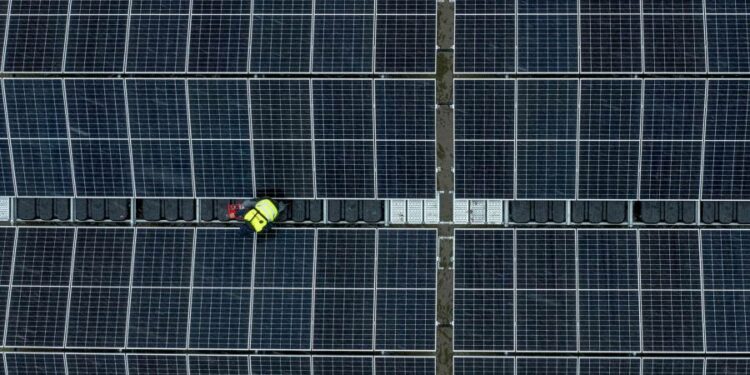Another global energy crisis has produced a series of political pledges to use energy more wisely. Russia’s invasion of Ukraine has brought calls to embargo the oil and gas exports that support the country’s economy, and laid bare the folly of maintaining fossil-fuelled energy systems that are no longer fit for purpose. This time, world leaders must do what they have repeatedly failed to do in the past, and use the turmoil to make a shift to clean energy a security priority. History offers a guide to the risks of doing otherwise.
No two energy crises are exactly alike but the latest is unusual. It was driven initially by a global pandemic and is the first of its type in the age of net zero. Yet it has also been fuelled by war, like some of its most notable predecessors.
Conflict in the Middle East led to the 1973 oil shock that began when Arab OPEC members imposed an oil embargo on the US for supporting Israel in the Arab-Israeli war. As oil prices spiralled, the US and other nations responded with what would become a familiar pattern of efforts to address energy market turbulence: conserve energy, boost domestic hydrocarbon production and find cleaner alternatives to fossil fuels.
In 1979, President Jimmy Carter put solar thermal panels on the White House roof, saying he hoped they would one day show “the power of the sun to enrich our lives as we move away from our crippling dependence on foreign oil”. This proved to be one of many false starts for a green energy revolution. The solar panels came down under Carter’s successor, Ronald Reagan, though other measures — national highway speed limits, fuel economy standards — proved more durable.
As it turned out, the shale boom this century eventually made the US the world’s largest producer of oil and gas, providing a glimpse of the energy independence its leaders had long sought. Elsewhere, France has long pursued a policy of using nuclear power as its main source of electricity. Yet dependence on hydrocarbon imports from often authoritarian regimes remains an immutable fact of life for developed economies, as Moscow’s assault on its neighbour has dismally demonstrated. As western leaders hurry to secure alternatives to Russian oil and gas, they have been forced to consider help from nations such as Saudi Arabia and Venezuela.
Meanwhile, the need to accelerate the transition to clean energy has become ever more acute. A UN science report this month showed the world is on track for a disastrous 3.2C of warming by the end of the century and made it clear that bold moves are needed to rapidly shift away from fossil fuels.
So far, too many leaders are doing the reverse in response to soaring energy costs. The administration of US President Joe Biden, who came to office promising to champion climate action, has begun a short-term effort to lower petrol prices. The UK is vowing to double down on nuclear and renewables but also opening the door to expanded domestic oil and gas production.
Yet any move that risks locking in new fossil fuel projects for decades to come is a mistake. Wealthy countries must help low-income households most vulnerable to high energy prices, but this can be done with temporary fiscal transfers rather than cuts to petrol taxes and steps that boost fossil fuel use. Leaders should focus on sweeping energy efficiency measures and an unprecedented build-up of low carbon energy sources. This will not be cost-free. But the tragedy of the Ukraine war will be compounded if the impetus to accelerate the shift to greener and more secure energy is not seized.











